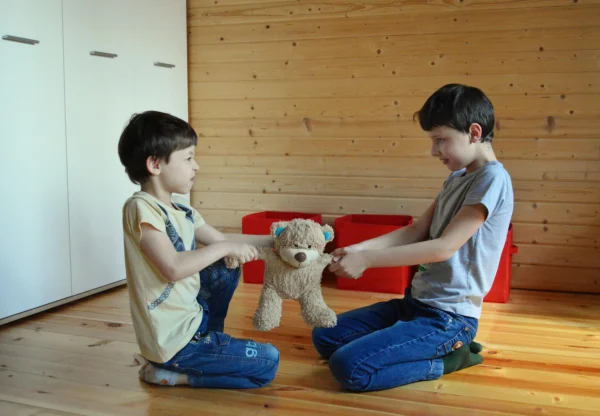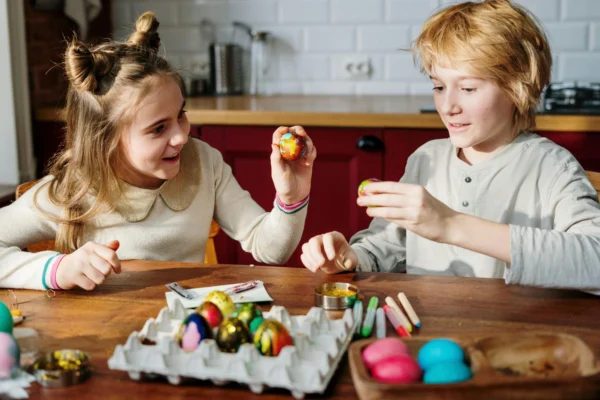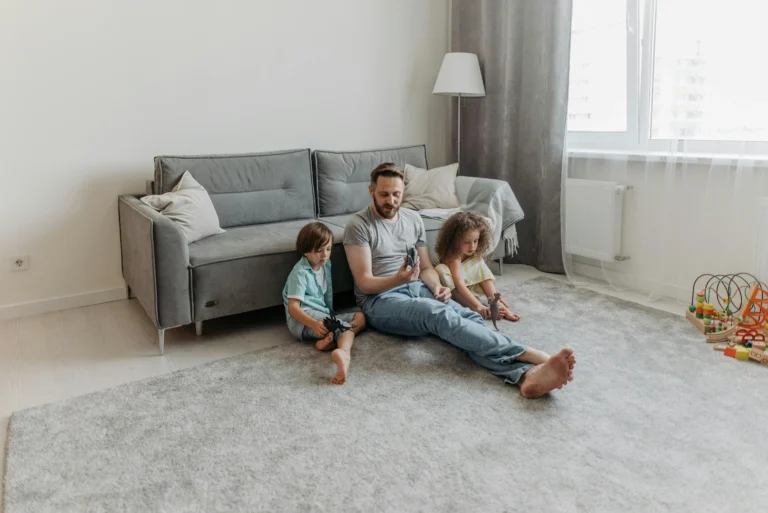If siblings fight, it can feel like non-stop fighting in your home, and parents often wonder how to manage sibling conflict without losing their cool. While some conflict is normal, like when kids test boundaries, compare possessions, and struggle over fairness, frequent arguments or physical violence can take a toll on both your emotional energy and your space. To keep a clean home, one that’s free of clutter and constant tension, parents need practical tools that foster empathy, communication, and strong sibling relationships.
This guide offers essential strategies to reduce sibling fighting, support effective problem-solving, and build lasting bonds between older children, one child, or another child in the family.
Understand Why They Fight
Kids fight for a variety of reasons: wanting attention, feeling competitive, or just exploring their world. Sibling relationships naturally involve conflict, and often siblings fight more than friends because of proximity. When parents see conflict as a developmental step in emotional growth, not a sign of failure, they can approach disputes with curiosity. This first step helps moms and dads shift from reacting to physical violence to guiding kids toward better communication and empathy.
Model Healthy Conflict Resolution
One of the best ways parents can show kids how to resolve disputes is by modeling calm, respectful behavior. When you’re in a disagreement, whether with your partner or another child, stay calm, use “I‑feel” words, and listen actively. This gives older kids, brothers, sisters, and even teenagers a first example of healthy interactions. When siblings fight, you can mediate by encouraging each child to express their feelings without shouting and to imagine how the other might feel. Over time, this helps reduce aggression and physical confrontations, and builds self-esteem through positive problem solving.
Teach Empathy and Emotional Skills

Developing empathy is vital to preventing kids fight episodes and more serious physical violence. Encourage kids to identify their emotions: “You seem sad” or “That looked hurtful.” These are simple prompts, but they teach emotional awareness. Then, ask them to imagine how the other child felt; this strengthens sibling relationships and builds compassion. Tools like emotion charts, role-play, or coaching older children to say, “I feel…,” help siblings learn emotional regulation and avoid physical aggression. This teaches real skills that help beyond the home, like at school or in life.
Set Clear Rules, Space, and Fairness
Parents benefit from establishing clear rules to manage sibling conflict. Make a family agreement: no hitting, no name-calling, and everyone respects personal toys and room spaces. Kids often argue about possession and fairness, so co-creating rules and expectations helps. Emphasize that fair doesn’t always mean equal, but means respecting needs. For instance, one child may need quiet for homework, while older children might need space to unwind. When siblings see these boundaries, conflicts decrease because parents aren’t constantly stepping in. This structure gives everyone a sense of security, supports self-esteem, and prevents power struggles.
Use Teamwork and Shared Activities

Moving from conflict to connection often starts with shared goals. Encourage children to work on cooperative play activities, like building a fort, helping with family chores, or cooking together. These things parents can initiate to help siblings see each other as teammates, not rivals. For older kids, try designing a science project or art activity they can do together. You can also plan a weekly “sibling date” where each pair gets quality time, no interference from parents, to chat or go to the park. You can even get them to do age-appropriate tasks together. These positive experiences offset negative conflicts and help build a stronger bond based on shared achievements and fun.
Encourage Independent Problem Solving
As tempting as it is to jump in and fix every argument, which is a common parenting mistake, parents should gradually teach kids to solve problems on their own. If siblings fight, pause before intervening; let them try working it out first. Offer support only if the conflict escalates or becomes physical. You can teach a simple problem-solving method: take turns talking, repeat what the other said in your own words, and suggest fair solutions together. This method gives each child a voice and responsibility. Over time, kids learn that they have the right tools to resolve everyday disputes without always relying on an adult.

